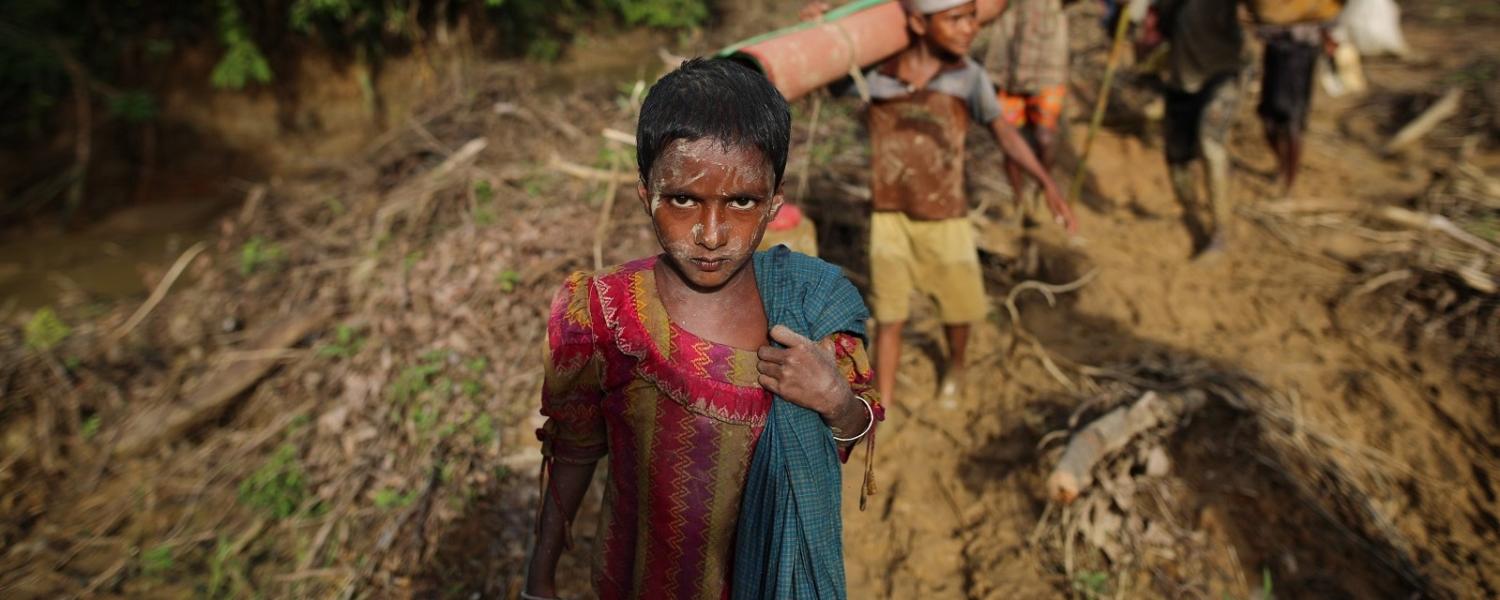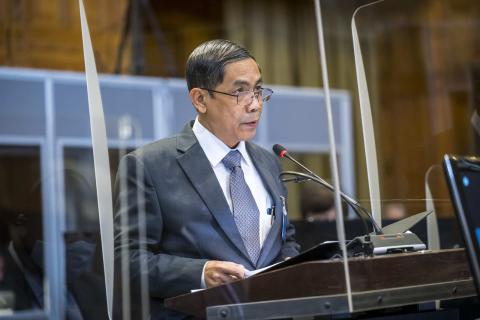It is always difficult to know exactly what is happening in Myanmar, particularly when eye-witness accounts and reliable reports are dismissed by the Naypyidaw government as ‘misinformation’ and ‘fake news’, when false images of atrocities are posted on the web alongside genuine ones, when statistics vary wildly, and when passion and propaganda compete for attention in the international news media with informed and objective analysis.
That said, it is clear that with respect to the current Rohingya crisis, developments in Myanmar over the past year can only be described as a disaster for all concerned, that will have far-reaching consequences. There will be no winners. Everyone loses.
Those who stand to lose most are the Rohingyas, as the stateless Muslims concentrated in Myanmar’s Rakhine State call themselves. Attacks against three police posts by the Arakan Rohingya Salvation Army (ARSA) in October 2016, and against 30 police posts and an army post this August, have resulted in a massive security crackdown. An unknown number of Rohingya villages have been destroyed by the army, police and Buddhist vigilantes. There have been an estimated 1000 deaths, almost all Rohingyas, and up to 275,000 have fled to makeshift refugee camps in Bangladesh.
These developments have been a political and personal disaster for Aung San Suu Kyi, Myanmar’s de facto leader. Since the security forces launched their ‘area clearance operations’ in 2016, she has been condemned for failing to speak out against human rights abuses, described by the UN as ‘devastating cruelty’, possibly even ‘crimes against humanity’ bordering on genocide. More recently, foreign commentators have been scathing in their criticisms of her clumsy attempts to deny the latest atrocities and shift the blame for the unfolding humanitarian nightmare. Calls for her to be stripped of her Nobel Peace Prize are growing louder.
As Aung San Suu Kyi’s international reputation has collapsed, so too has that of her government. It clearly has no control over the country’s armed forces (Tatmadaw) which, under the 2008 constitution, act independently in security matters. It also seems to be afraid of arousing Myanmar’s deep-seated anti-Muslim prejudices. This has left it looking weak and ineffectual, if not complicit in human rights abuses. The report prepared by former UN Secretary-General Kofi Annan, on which the government had pinned its hopes for a solution to the broader Rohingya issue, has had to be shelved.
The Tatmadaw currently seems to have the whip hand. Yet, for it too, developments over the past year can be seen as a setback. Around 2011, the Commander-in-Chief (C-in-C) embarked on a program to make the armed forces more modern, more professional and more respected. Myanmar’s embattled ethnic communities were never persuaded that the high command’s mindset had really changed, and this view has now been confirmed by the cynical strategy and brutal tactics adopted by the police (which are controlled by the C-in-C) and army in Rakhine State.
The Tatmadaw’s reputation inside Myanmar does not seem to have suffered greatly – most locals view the Rohingyas unsympathetically, as illegal Bengali immigrants – but its standing in international circles has fallen dramatically. There is now little chance that Western countries will relax their restrictions on bilateral defence engagement. This is a significant loss for the Tatmadaw, which is keen to learn about foreign military policies and practices. Such contacts would have also helped its officers learn about international norms of behaviour and the role of armed forces in democracies. Any hopes the Tatmadaw might have had to acquire Western arms and equipment can be forgotten.
The events of the past year have also been a disaster for Myanmar’s civil society. As the International Crisis Group has pointed out, the last anti-Muslim riots were in 2013, but religious tensions have remained high. There have been calls within Myanmar for a peaceful solution to the Rohingya problem but recent developments in Rakhine State have strengthened the hand of Buddhist extremists who have been waiting for an opportunity to reassert themselves. Even if the Tatmadaw’s prediction of ARSA attacks in Myanmar’s cities proves incorrect, there is the risk of further communal violence.
In other ways too, the Rohingya crisis is a disaster for Myanmar. With the government’s gaze and resources focussed on Rakhine State, less attention is being paid to other parts of the country, and other pressing issues. A nation-wide peace agreement with ethnic armed groups, for example, seems an even more distant prospect. Fewer funds will be available to fill gaping holes in the budget, in critical areas like health and education. The crisis and declining international confidence in Aung San Suu Kyi have already had a negative impact on foreign direct investment and Myanmar’s economic growth.
Over the longer term, the Rohingya crisis is a disaster for Myanmar’s planned transition from authoritarian rule to a more democratic system of government.
When it announced its intention to launch a violent campaign on behalf of the Rohingyas, ARSA played into the hands of conservative elements in the armed forces. While there is little evidence that it supports a transnational Islamist agenda, ARSA was immediately cast as a member of an international terrorist conspiracy. This made it a clearly identifiable threat to Myanmar’s sovereignty, unity and stability, the three ‘national causes’ enshrined in the 2008 constitution and for over half a century the armed forces’ highly publicised raison d’etre.
As former US ambassador to Myanmar Derek Mitchell has pointed out, the Tatmadaw’s roles as Myanmar’s ‘saviour’ and protector of the country’s majority Buddhist culture have been confirmed. The Rohingya crisis has pushed the generals to the forefront of government decision-making, where their hard line is likely to remain the default policy position. The armed forces’ claim to a central place in national political life has been reaffirmed. By the same token, the standing and influence of Aung San Suu Kyi and her quasi-civilian government have been diminished.
Myanmar has also lost ground in foreign policy terms. Governments of all colours have expressed grave concern over the Rohingya crisis and its international implications. Indonesia even sent its foreign minister to Naypyidaw to speak directly to Aung San Suu Kyi. The UN has been particularly critical of the Myanmar government’s handling of the crisis, including its accusations that NGOs were assisting the ARSA. For the UN Secretary-General, the Rohingyas were ‘an undeniable factor in regional destabilisation’ that demanded a ‘holistic’ solution.
Given current attitudes in Myanmar, the Rohingya tragedy could drag on for years. ARSA will not achieve its aims, but Muslim anger both within Myanmar and overseas will remain. Religious divisions in the country will harden. Hundreds of thousands of refugees will be left in squalid camps in Bangladesh, unwanted by anyone and facing a bleak future. The Tatmadaw will consolidate its political gains, while Aung San Suu Kyi and her government will find it even harder to implement much-needed reforms. The democratic transition process in Myanmar, such as it was, has been set back years, possibly decades.
In these circumstances, no-one wins. Everyone loses.

